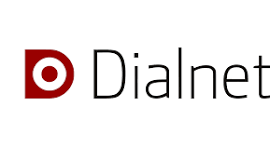Actividades experimentales: una alternativa metodológica para el aprendizaje de la física
Palabras clave:
Actividades Experimentales, Enseñanza-Aprendizaje de la Física, Constructivismo, Aprendizaje SignificativoResumen
La Física aporta en gran medida la consolidación del proceso enseñanza y aprendizaje en los estudiantes, mediante un proceso que implica observar, describir, comparar, clasificar, teorizar, discutir, argumentar y comprender la naturaleza por medio de hechos que se vinculan desde la realidad. El propósito de este trabajo es diseñar actividades experimentales como una alternativa metodológica para el aprendizaje de la Física en el 4to Año de Educación Media General; el cual surgió de un diagnóstico realizado a docentes de Física en cuanto al abordaje de esta disciplina científica, donde se observó que la mayoría, el 73,1%, no realizan prácticas de laboratorio por no contar con equipos y materiales de fácil acceso. Cabe destacar que el conjunto de actividades experimentales diseñado se considera viable pedagógicamente para ser empleada, obteniéndose un 98,9%, lo que favorece la transferencia de conocimiento hacia el entorno social. La investigación se abordó desde una metodología descriptiva con un diseño de campo, donde los datos fueron recogidos directamente de 26 docentes de Física de diferentes instituciones educativas del estado Trujillo, a través de un cuestionario válido y confiable, alcanzando un valor de 0,90 que indica una confiabilidad alta. Los resultados obtenidos en el diagnóstico fueron: 38,5% de los docentes manifiestan hacer demostraciones en el aula, 73,1% no realizan prácticas de laboratorio, 100% manifestó que carece de un conjunto de actividades experimentales y 100% indicó la ausencia de un laboratorio de Física bien dotado. Se concluye la necesidad de un conjunto de actividades experimentales de Física adecuadas para su realización en el aula sin la necesidad de un laboratorio, permitiendo realizar el diseño de cada actividad experimental de tal forma que involucre la teoría, la práctica y la vinculación que ella tiene con su contexto, logrando que el estudiante sea un participante activo y constructor de su aprendizaje.
Citas
Artigas, D. y Nava, J. (2007). La V epistemológica de Gowin como estrategia de aprendizaje de la ley de Ohm. Trabajo de Grado, Núcleo Universitario Rafael Rangel, Universidad de Los Andes, Trujillo-Venezuela.
Currículo Bolivariano. (2007). Subsistema de Educación Secundaria Bolivariana: Liceos Bolivariano. Ministerio del Poder Popular para la Educación, Caracas-Venezuela.
Díaz, B y Hernández, G (1990). Estrategias docentes para un aprendizaje significativo.
Una interpretación constructivista. México: Mc Graw Hill.
García, S y Merino, M. (2000). Propuesta de un modelo de trabajos prácticos de Física. Departamento de Didáctica de las Ciencias Experimentales, Facultad de Educación, Valladolid-España.
Gil, D y Valdés, P (1996). La orientación de las prácticas de laboratorio como investigación: Un ejemplo ilustrativo. Departamento de Didáctica de las Ciencias Experimentales, Universidad de Valencia, España.
Massoni, N. y Moreira, M. (2010). Un enfoque epistemológico de la enseñanza de la Física: Una contribución para el aprendizaje significativo de la Física, con muchas cuestiones sin respuesta. Revista Electrónica de Enseñanza de las Ciencias, 9 (2), 283-308.
Materán, I (2006). Los mapas conceptuales y la V de Gowin como estrategia de aprendizaje en las leyes de Newton. Trabajo de Grado, Núcleo Universitario Rafael Rangel, Universidad de Los Andes, Trujillo-Venezuela.
Moncada (2000). Importancia de la medición en la resolución de problemas en cinemática. Trabajo de Maestría, Universidad de Carabobo, Valencia-Venezuela.
Nava, J. (2014). Propuesta de un manual de laboratorio de Física bajo la perspectiva de Ciencia, Tecnología y Sociedad. Trabajo de Maestría, Núcleo Valera, Universidad Nacional Experimental Simón Rodríguez, Trujillo-Venezuela.
Rosario, J. & Villarreal, M (2013). Las TIC para el proceso de enseñanza-aprendizaje en los laboratorios de Física en el nivel universitario en el estado Trujillo, Venezuela. Revista Internacional de Tecnología y Sociedad, 2 (2), 53-66.
Descargas
Publicado
Cómo citar
Número
Sección
Licencia
Derechos de autor 2019 Jeisson E. Nava, Manuel A. Villarreal

Esta obra está bajo una licencia internacional Creative Commons Atribución 4.0.








